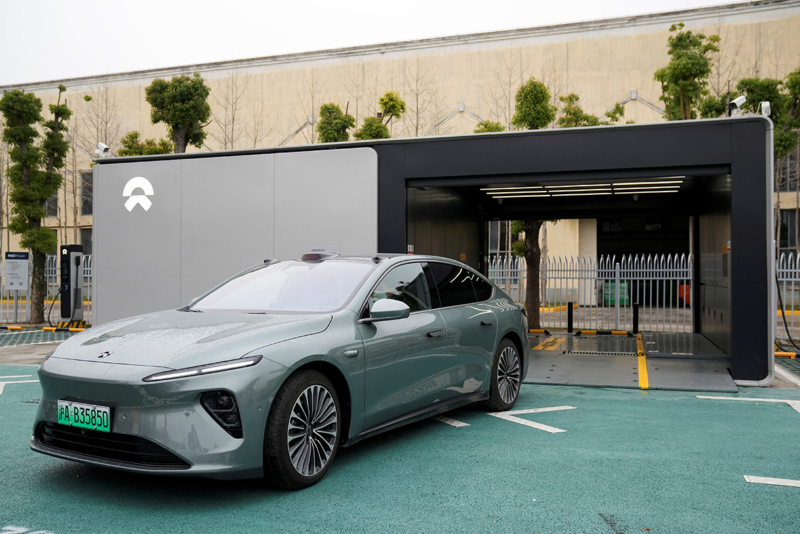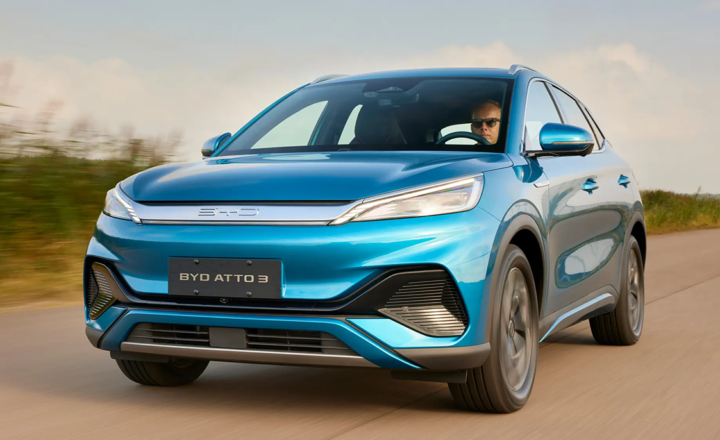Chinese Electric Cars: How Brands Like NIO and BYD Are Shaking Up the EV Market
October 25, 2024

China has rapidly emerged as a dominant force in the global electric vehicle (EV) market, with brands like NIO, BYD, Xpeng, and Li Auto leading the charge. Once considered a follower in the automotive industry, China is now setting trends in electric mobility, challenging established players like Tesla and European automakers. Chinese EV manufacturers are not only excelling in their domestic market but also expanding their reach globally, offering high-tech features, competitive pricing, and innovative business models.
In this article, we’ll explore how Chinese electric car brands like NIO and BYD are transforming the EV landscape, the factors driving their success, and their impact on the global market.
1. The Rise of Chinese Electric Vehicle Brands
The rise of Chinese EV brands can be traced back to the country’s strong government support for electric mobility, combined with consumer demand for affordable and environmentally friendly vehicles. China’s aggressive policies promoting EV adoption have allowed domestic automakers to develop advanced technologies and scale production faster than many international competitors.
Key factors driving the rise of Chinese EV brands:
- Government Support: The Chinese government has heavily subsidized the production and purchase of EVs, providing financial incentives, tax breaks, and investment in charging infrastructure. This has helped Chinese automakers gain a significant foothold in the market.
- Technological Innovation: Chinese automakers have made significant investments in research and development, leading to advancements in battery technology, autonomous driving, and smart connectivity. Brands like NIO and Xpeng are known for their cutting-edge tech features.
- Cost Competitiveness: Chinese EV manufacturers have leveraged their ability to produce cars at lower costs, making electric vehicles more affordable for a larger audience. This competitive pricing has helped Chinese brands gain market share both domestically and internationally.
- Environmental Policies: China’s commitment to reducing emissions and improving air quality has fueled the demand for electric vehicles, with cities setting ambitious goals for phasing out internal combustion engines in favor of zero-emission alternatives.
With a combination of government backing, innovation, and cost competitiveness, Chinese EV brands are well-positioned to challenge global automakers.
2. NIO: A Pioneer in Electric Mobility
NIO is one of the most well-known Chinese electric vehicle manufacturers, often referred to as the “Tesla of China.” Founded in 2014, NIO has gained a reputation for producing premium electric vehicles that combine performance, luxury, and advanced technology. The company has also pioneered innovative business models, including battery-as-a-service (BaaS).
Key highlights of NIO:
- High-Tech EVs: NIO offers a range of high-tech electric vehicles, including the ES8, ES6, and EC6 SUVs, as well as the ET7 luxury sedan. These vehicles feature state-of-the-art autonomous driving technology, over-the-air software updates, and smart connectivity features.
- Battery-as-a-Service (BaaS): NIO’s BaaS model allows customers to purchase vehicles without the battery, significantly lowering the upfront cost. Instead, users subscribe to a battery service, swapping out depleted batteries for fully charged ones at NIO’s network of battery swap stations. This innovative approach helps reduce range anxiety and offers flexibility in battery upgrades.
- Global Expansion: While NIO has primarily focused on the Chinese market, the company has begun expanding internationally, with plans to enter the European and North American markets. NIO’s expansion is part of its strategy to compete with established brands in the luxury EV segment.
NIO’s focus on luxury, technology, and innovative ownership models has helped the brand stand out in the competitive EV market.
3. BYD: A Giant in the Electric Vehicle World
BYD (Build Your Dreams) is one of the largest electric vehicle manufacturers in the world, producing everything from electric cars and buses to batteries and energy storage solutions. Founded in 1995, BYD initially focused on battery production before becoming a major player in the EV industry. Today, BYD is recognized as a leader in both electric passenger vehicles and commercial electric fleets.
Key highlights of BYD:
- Diverse Product Line: BYD produces a wide range of electric vehicles, including the popular Tang SUV, Han sedan, and Dolphin compact car. The company also manufactures electric buses and trucks, making it a global leader in electric public transportation.
- Battery Expertise: As one of the world’s largest battery producers, BYD has a significant advantage in EV production. The company’s proprietary Blade Battery technology is known for its safety, durability, and high energy density, giving BYD a competitive edge in the EV market.
- Global Reach: BYD is expanding rapidly in international markets, with a strong presence in Europe, North America, and Latin America. The company is a major supplier of electric buses and is working to introduce its passenger EVs to new regions, including Norway and the U.K.
BYD’s expertise in battery technology and its diverse product lineup have helped it become a global leader in electric mobility.
4. Impact on the Global EV Market
Chinese EV brands like NIO and BYD are having a profound impact on the global electric vehicle market. Their ability to innovate, scale production, and offer competitive pricing is challenging traditional automakers and reshaping the competitive landscape.
How Chinese EV brands are disrupting the global market:
- Increased Competition: Chinese automakers are offering high-quality EVs at lower prices, forcing established players like Tesla, Volkswagen, and BMW to step up their game. This increased competition is driving down prices and accelerating the adoption of electric vehicles worldwide.
- Technological Leadership: Chinese brands are leading the way in autonomous driving, smart connectivity, and battery technology. NIO’s BaaS model and Xpeng’s autonomous driving features are just a few examples of how Chinese companies are pushing the boundaries of innovation.
- Global Expansion: As Chinese EV brands expand into international markets, they are bringing new choices to consumers and challenging the dominance of Western automakers. This global expansion is helping to increase the availability of affordable EVs and driving growth in the overall market.
- Environmental Impact: By producing millions of electric vehicles, Chinese automakers are playing a critical role in reducing global carbon emissions and helping countries meet their climate goals. The rise of Chinese EV brands is accelerating the transition to a cleaner, more sustainable transportation system.
The influence of Chinese EV brands is reshaping the global market, bringing innovation and affordability to the forefront of the electric vehicle industry.
5. The Future of Chinese EVs
As the global demand for electric vehicles continues to grow, Chinese automakers are well-positioned to capitalize on this trend. With their technological prowess, government support, and growing international presence, Chinese EV brands are expected to play a major role in shaping the future of mobility.
Key trends shaping the future of Chinese EVs:
- Autonomous Driving: Chinese companies are investing heavily in autonomous driving technology, with brands like NIO, Xpeng, and Baidu leading the charge. As autonomous vehicles become more mainstream, Chinese automakers could play a pivotal role in developing self-driving EVs.
- Battery Advancements: Continued advancements in battery technology, including solid-state batteries and improved energy density, will allow Chinese EVs to offer longer ranges and faster charging times. Brands like CATL and BYD are at the forefront of battery innovation.
- Global Expansion: Chinese EV brands are expanding their presence in Europe, North America, and other global markets. As these brands establish themselves internationally, they will challenge traditional automakers and increase global competition.
- Affordable EVs: Chinese automakers are known for producing affordable electric vehicles, making EVs accessible to a broader range of consumers. As EV adoption grows, Chinese brands will continue to offer competitively priced models, driving global adoption.
The future of Chinese EVs looks promising, with continued innovation, expansion, and leadership in the global electric vehicle market.
Conclusion: Chinese EV Brands Are Reshaping the Industry
Chinese electric vehicle brands like NIO and BYD are shaking up the global EV market with their innovative technologies, competitive pricing, and aggressive expansion strategies. As they continue to challenge established automakers and push the boundaries of what electric vehicles can offer, these brands are helping to accelerate the shift toward a more sustainable, electrified future. With strong government support, technological leadership, and global ambitions, Chinese EV manufacturers are poised to play a major role in the future of transportation.






